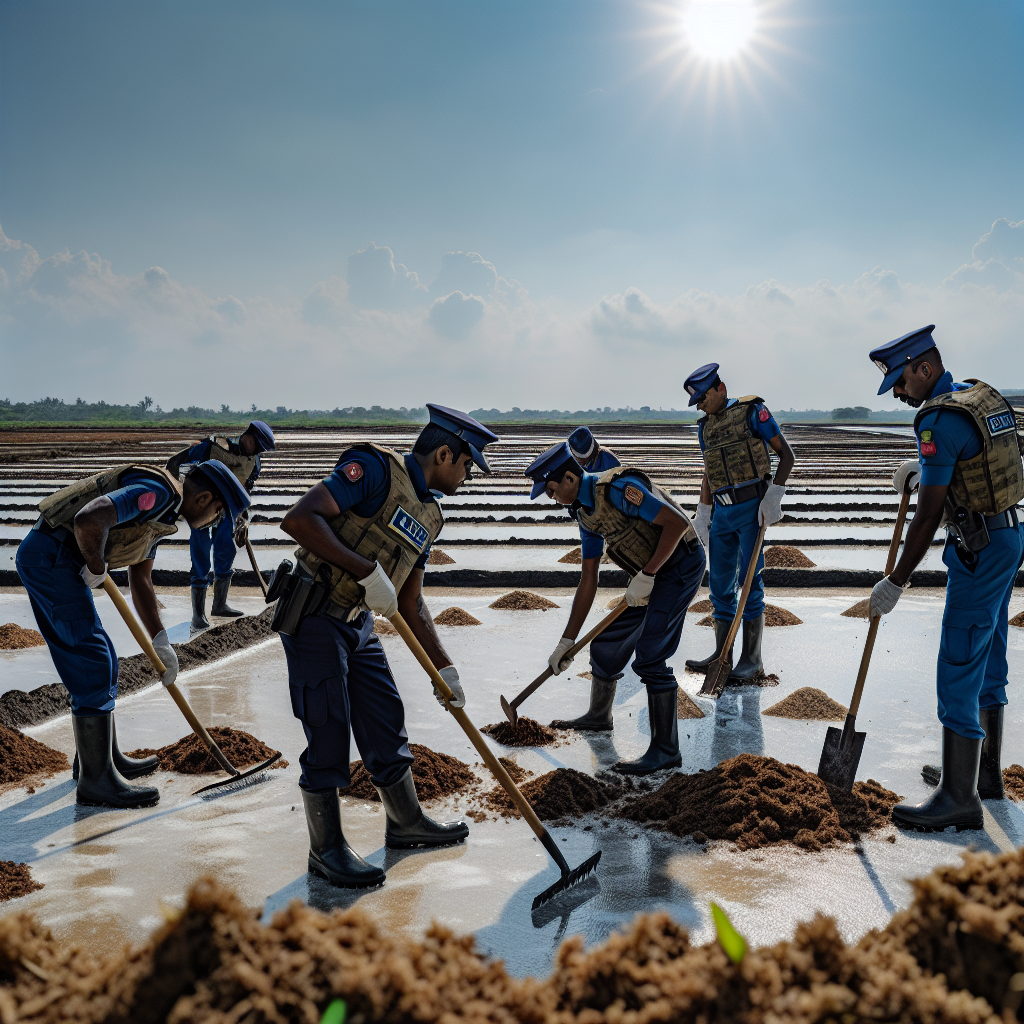How Sri Lankan Police Are Restoring Salt-Damaged Farms
How Sri Lankan Police Are Restoring Salt-Damaged Farms
Introduction
Sri Lanka is facing a significant agricultural challenge as saltwater intrusion has damaged many of its coastal farms. In an innovative move, the Sri Lankan police have stepped in to assist in the restoration of these vital agricultural lands.
Challenges of Salt-Damaged Farms
Coastal farms in Sri Lanka have been severely affected by saltwater intrusion, which has led to:
- Reduced soil fertility
- Decreased agricultural productivity
- Economic hardships for local farmers
Police Involvement in Restoration Efforts
The Sri Lankan police have taken a proactive role in addressing this issue by:
- Collaborating with agricultural experts to develop effective restoration techniques
- Providing manpower and resources to implement soil rehabilitation projects
- Engaging with local communities to educate and involve them in sustainable farming practices
Innovative Restoration Techniques
Several innovative techniques are being employed to restore the salt-damaged farms, including:
- Use of salt-tolerant crop varieties
- Application of organic soil amendments to improve soil structure
- Implementation of water management systems to prevent further saltwater intrusion
Community Impact and Future Prospects
The involvement of the police in these restoration efforts has had a positive impact on the community by:
- Boosting morale and providing hope for affected farmers
- Encouraging community participation in sustainable agricultural practices
- Setting a precedent for innovative problem-solving in the face of environmental challenges
Conclusion
The Sri Lankan police’s involvement in restoring salt-damaged farms is a testament to the power of collaboration and innovation in addressing environmental challenges. By employing a combination of expert knowledge, community engagement, and innovative techniques, they are paving the way for a more resilient agricultural future in Sri Lanka.






































